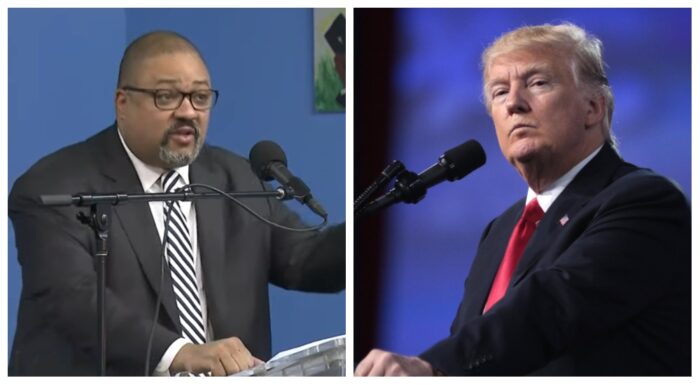Missouri GOP Attorney General Andrew Bailey is taking legal action against the New York government, arguing that the state’s prosecution of former President Donald Trump during his hush money trial infringes on Missourians’ First Amendment rights. Bailey’s lawsuit contends that the prosecution and the gag orders imposed on Trump curtailed his ability to campaign for the 2024 election, thereby undermining Missourians’ right to hear from him freely as they prepare for Election Day.
Bailey is petitioning the Supreme Court to declare that New York unlawfully interfered with the presidential election, to delay his upcoming sentencing until after the presidential election, and to eliminate gag orders against him, Just the News reported.
“Right now, Missouri has a huge problem with New York. Instead of letting presidential candidates campaign on their own merits, radical progressives in New York are trying to rig the 2024 election by waging a direct attack on our democratic process,” said Bailey. “I will not sit idly by while Soros-backed prosecutors hold Missouri voters hostage in this presidential election. I am filing suit to ensure every Missourian can exercise their right to hear from and vote for their preferred presidential candidate.”
The lawsuit comes just one month after New York obtained an illicit conviction against President Trump, and alleges three specific violations:
- Count I: Interference with the Presidential Election in other States
- Count II: Violation of Purcell (a federal case prohibiting courts from sowing voter confusion or changing election rules in the months leading up to an election)
- Count III: Violation of the First Amendment rights of voters in other States
“This lawfare is poisonous to American democracy. The American people ought to be able to participate in a presidential election free from New York’s interference. Any gag order and sentence should be stayed until after the election,” Bailey added.
In his lawsuit, Bailey details how Manhattan District Attorney Alvin Bragg pursued charges against former President Donald Trump, alleging the motive was to bolster Joe Biden’s campaign and prevent Trump’s return to the White House. Bailey points out that Bragg, while previously working for the New York Attorney General’s Office, was involved in civil litigation against Trump and used this experience as a campaign promise to prosecute him further upon election as DA.
Moreover, Bragg recruited Matthew Colangelo, previously the third highest-ranking member at Biden’s Department of Justice, to head the prosecution against Trump, intensifying concerns about the political motivations behind the case, the AG’s office said in a press release.
The lawsuit highlights allegations against Judge Juan Merchan, who presided over the case, accusing him of violating state judicial ethics rules through his donations to the Biden campaign. Despite these contributions to Trump’s presidential rival, Judge Merchan did not recuse himself from the case, raising concerns due to a close family member who purportedly stood to benefit financially from a conviction. Furthermore, when Trump publicly pointed out these issues, Merchan responded by imposing a gag order on him.
“Trump’s conviction is very likely to be overturned on appeal. But by then, the constraints New York has sought to impose on Trump to limit his ability to campaign will already have had their full effect. Missouri has a strong, judicially enforceable interest in its citizens and electors being able to hear Trump’s campaigning free from any gag order or other interference imposed by the State of New York,” he said.
Bailey filed a motion of preliminary injunction, asking the Supreme Court to immediately halt any further action in the New York case until after the American people have had their say at the ballot box in November. It’s unclear whether the nation’s highest court will take up the case, but arguments between states automatically become the sole jurisdiction of the Supreme Court, not lower federal courts.



